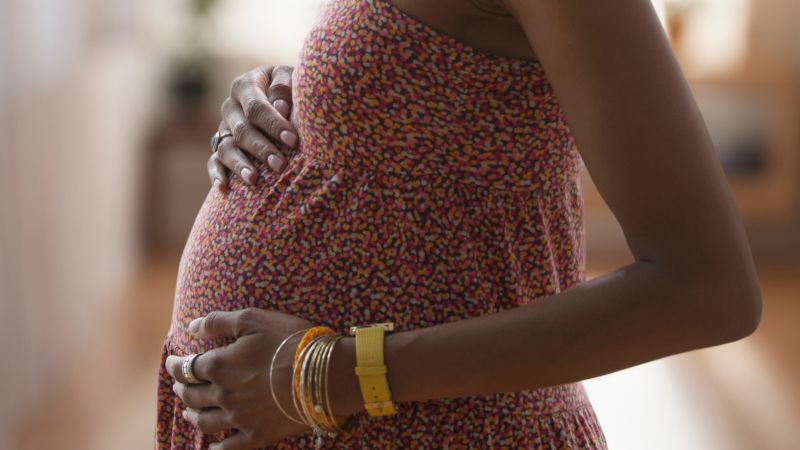
Get inspired by a weekly roundup on living well, made simple. Sign up for CNN’s Life, But Better newsletter for information and tools designed to improve your well-being.
CNN
—
Having a baby is energetically much more expensive than commonly thought, according to new research.
In fact, over the course of a pregnancy, creating and carrying a little one takes 49,753 dietary calories — the equivalent of 164 Snickers candy bars, said Dr. Dustin Marshall, a coauthor of the study published May 16 in the journal Science.
For the meta-analysis, Marshall, a professor of evolutionary biology at Monash University in Melbourne, Australia, and a team of researchers used data from thousands of existing scientific articles to look at the energy cost of several species.
“While most folks probably intuit, or have actually experienced the high energy demands that come from gestating a baby, our work assigns explicit values to these costs across a wide range of species — from insects to lizards to humans,” said lead study author Dr. Samuel Ginther, a postdoctoral researcher of biological sciences at Monash University, in an email.
“We found that the total energy it takes to reproduce is much more substantial than previously considered.”
The bulk of the additional energy a pregnant person needs goes toward developing and carrying the fetus, Ginther added.
“Most of (the) energy that mammals put into reproduction is ‘boiled off’ as metabolic heat, only 10% ends up in the actual baby,” Marshall said in an email. “When both lactation and metabolic loads are accounted for, the baby itself represents less than 1/20th of the total reproductive investment.”
The research could make a big difference in perceptions of pregnancy needs, said Dr. Eve Feinberg, associate professor of obstetrics and gynecology at Northwestern University’s Feinberg School of Medicine in Chicago. She was not involved in the research.
“I think this study is groundbreaking,” she said. “Any working pregnant woman could tell you the sheer level of exhaustion when you are pregnant … and how it consumes your life.”
How to break down what you need
The extra calorie needs were not equal across the term of the pregnancy — you need less early on and much more as time goes on, Marshall said.
Once you get to the second trimester, you need about 350 extra calories a day, while you need 450 more calories daily in the third trimester, said dietitian Natalie Mokari of Charlotte, North Carolina.
If you breastfeed after the baby is born, you will need to add 450 to 500 more calories to your prepregnancy diet, she added.
You can think of it as an additional substantial snack or mini meal in your day around the second trimester, Mokari said. And by the third trimester and breastfeeding, the additional calories amount to a meal.
“Your body is in overdrive. Your metabolism is working hard to build another human,” she said. “That’s pretty monumental.”
What to eat
How you eat will depend on your pregnancy, Mokari said.
She recommends trying to eat every three to four hours or add smaller snacks every two hours throughout the day if that works better for your pregnancy symptoms, she said.
“It doesn’t have to necessarily be three standard meals with a few snacks in between, because sometimes you can’t handle that in pregnancy if you’ve got nausea or anything like that,” Mokari said.
Mokari stressed the importance of carbs for energy, protein and healthy fat — “those high-quality fats that are going to promote good brain health for the baby.”
What constitutes a healthy fat? Fatty fish such as salmon, olive oil, avocados, avocado oil, peanut butter and almond butter are all great examples, Mokari said.
Milk and dairy can also provide that fat along with other vitamins, and eggs can be a good source of both protein and fat, she added.
“You really want your energy to come from good, whole foods,” Feinberg added.
Get some sleep
This study also suggests that sleep is probably especially important during pregnancy, Feinberg said.
“If you feel tired, go to sleep, and really understand that you’re not being a wimp, that you’re exhausted in pregnancy,” Feinberg said.
Unfortunately, there can be a stigma around pregnant people having higher sleep needs, but the study’s findings should work against that, she said.
“These data really give some solid numbers to say that the exhaustion women feel is very real and probably needs to be paid more attention to,” Feinberg said.
